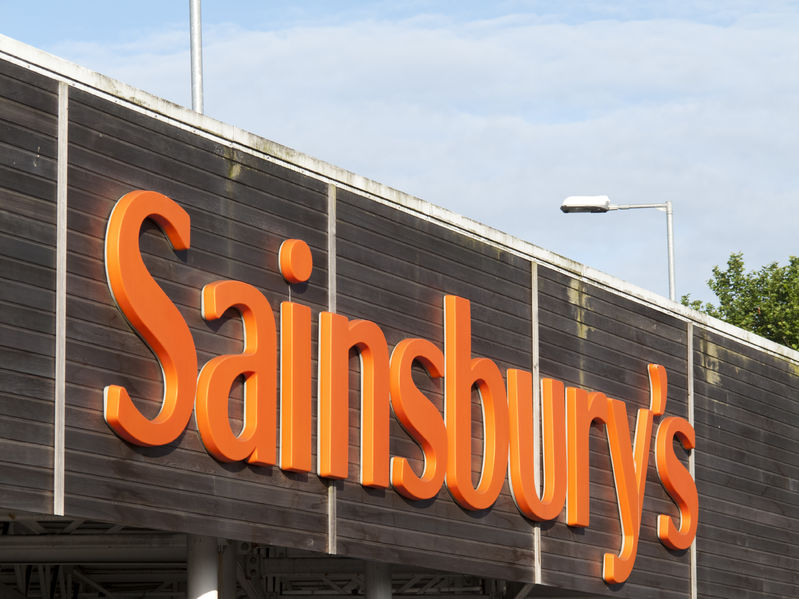
Farmers' leaders are seeking clarification following indications that one of the United Kingdom's biggest supermarket groups could abandon barn eggs.
Concerns were raised after a barn egg producer in Northern Ireland reportedly said he had been informed that Sainsbury's would not stock barn eggs beyond the end of March next year.
It had been believed that retailers would adopt barn eggs as their value offering as they moved towards a cage-free commitment by 2025.
Sainsbury's would neither confirm nor deny that it was abandoning barn eggs, but Robert Gooch, chief executive of the British Free Range Egg Producers Association (BFREPA) said he was seeking clarification.
“BFREPA is in contact with Sainsbury's to establish what its future policy will be on stocking barn eggs,” he said.
“Our view is when retailers and food service companies deliver their cage-free pledges there must be a value egg available on the shelf. Our hope and expectation is that barn production will fill that demand.
“It would be disappointing for any retailer to decide against stocking barn eggs to give consumers choice at a variety of price points.
“My members are already experiencing significant price pressure and can ill afford for their product to become the budget option,” he said.
'Total bolt from the blue'
Questions were raised when a barn egg producer in Loughgall, County Armagh, Paul Conway, said he had been told by Skea Eggs that Sainsbury's would stop taking barn eggs and that the packer had no alternative market for them.
He told free range egg magazine The Ranger that Skea had been told in one sentence in a notice from Sainsbury's that the supermarket would no longer be taking barn eggs from April 1, 2020.
“This has come as a total bolt from the blue. We had no warning of it all. The management of Skea Eggs has told us that they have no alternative market for our eggs at the present time.
“If this remains the case, it's inevitable that all the producers affected will go out of business.” He said, “We do not have the scope to convert to free range production.
“What makes this all the more galling is the fact that management from Sainsbury’s was on my farm not that long ago, expressing delight at the job barn egg producers in Northern Ireland were doing for them at that time.”
He said he still had five years' payments to make on a second shed he had put up in 2014 because of the demand for barn eggs. That was costing him £2,000 a month.
The Ranger asked Sainsbury's to confirm that it would stop sourcing barn eggs.
The company issued a statement, saying: “In order to meet increasing demand for free range eggs while offering the best possible value, we recently made some updates to our supplier base.
“We are working closely with our suppliers to ensure a smooth transition and supporting them in any way we can.”
The Ranger asked again whether Sainbury's would no longer stock barn eggs. The company replied: “We’re working to meet increasing demand for free range eggs. We wouldn’t comment further for competitive reasons.”
'Major concern'
The Ulster Farmers Union (UFU) has also raised concern about what it is happening. UFU deputy president, David Brown said: “The UFU is investigating the claim that Sainsbury's has decided to not stock barn eggs from 1st April 2020 and is seeking urgent clarity from the retailer.
“If this is the case, it is a major concern and would obviously have a significant impact on a number of barn egg producers.

“While we recognise supermarket commercial decisions are driven by consumer demand, we would encourage retailers to consider the impact on primary producers.”
He added: “In the egg sector, many producers have made 10-15 year investments and have substantial debt against houses. They are not able to change course quickly due to business infrastructure and cash flow.
“With consumer tastes changing rapidly, it is a tremendously uncertain time for egg producers and retailers must provide clarity for suppliers as the industry transitions towards cage free egg production by 2025,” Mr Brown said.
Commitment to move away from cage eggs
All major retailers in the UK and some leading food manufacturers have committed to moving away from using cage eggs by 2025, following pressure from animal welfare campaigners.
Egg producers have been calling for greater clarity from retailers about what will replace the birds currently in enriched colony units, although Tesco has said that the supermarket would buy barn as a value product.
This was confirmed at the annual conference of BFREPA, when Tesco agricultural manager John Kirkpatrick said that Britain's biggest supermarket would be buying barn eggs.
The commitment to move to cage-free in the UK started in the summer of 2016, when Tesco announced that it would stop sourcing cage eggs by 2025.
This followed the success of an online petition started by a 14-year-old girl from Sheffield. She initially targeted Tesco with a call to stop selling cage eggs. The petition went viral.
After Tesco announced that it would move away from cage eggs, other retailers, including Asda, Morrisons and the discounters Aldi and Lidl, also made cage-free declarations. Sainsbury's, Marks & Spencer and Waitrose had already stopped selling eggs from cages some years ago.
Since then, Morrisons, Britain's fourth biggest supermarket, has announced that it will bring forward the date by which it intends to go cage-free to 2022.
In the United Kingdom more than half of shell eggs sold in retail are now produced in free range units and free range is continuing to drive growth in consumption.
